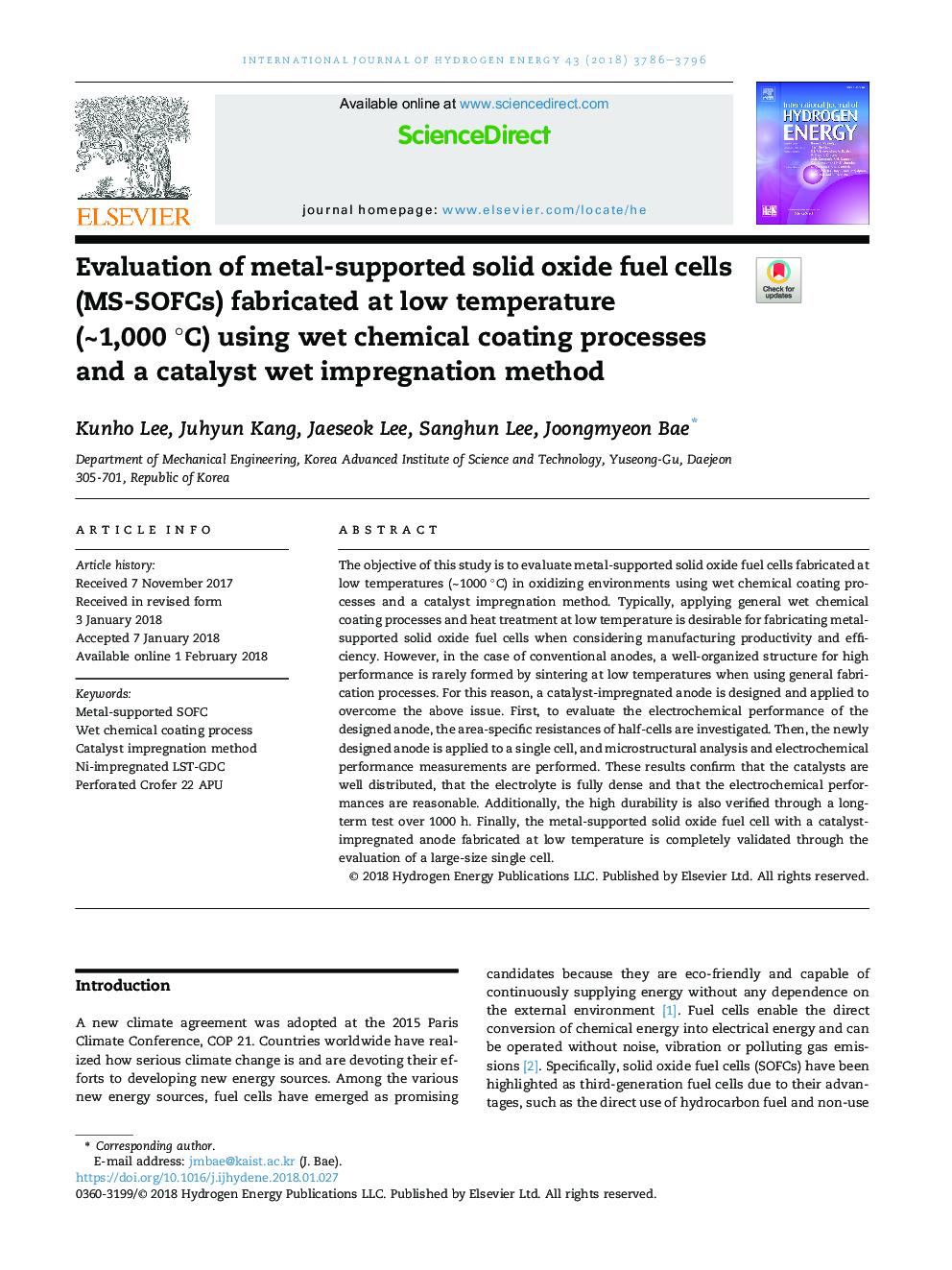| Article ID | Journal | Published Year | Pages | File Type |
|---|---|---|---|---|
| 7707648 | International Journal of Hydrogen Energy | 2018 | 11 Pages |
Abstract
The objective of this study is to evaluate metal-supported solid oxide fuel cells fabricated at low temperatures (â¼1000 °C) in oxidizing environments using wet chemical coating processes and a catalyst impregnation method. Typically, applying general wet chemical coating processes and heat treatment at low temperature is desirable for fabricating metal-supported solid oxide fuel cells when considering manufacturing productivity and efficiency. However, in the case of conventional anodes, a well-organized structure for high performance is rarely formed by sintering at low temperatures when using general fabrication processes. For this reason, a catalyst-impregnated anode is designed and applied to overcome the above issue. First, to evaluate the electrochemical performance of the designed anode, the area-specific resistances of half-cells are investigated. Then, the newly designed anode is applied to a single cell, and microstructural analysis and electrochemical performance measurements are performed. These results confirm that the catalysts are well distributed, that the electrolyte is fully dense and that the electrochemical performances are reasonable. Additionally, the high durability is also verified through a long-term test over 1000 h. Finally, the metal-supported solid oxide fuel cell with a catalyst-impregnated anode fabricated at low temperature is completely validated through the evaluation of a large-size single cell.
Keywords
Related Topics
Physical Sciences and Engineering
Chemistry
Electrochemistry
Authors
Kunho Lee, Juhyun Kang, Jaeseok Lee, Sanghun Lee, Joongmyeon Bae,
